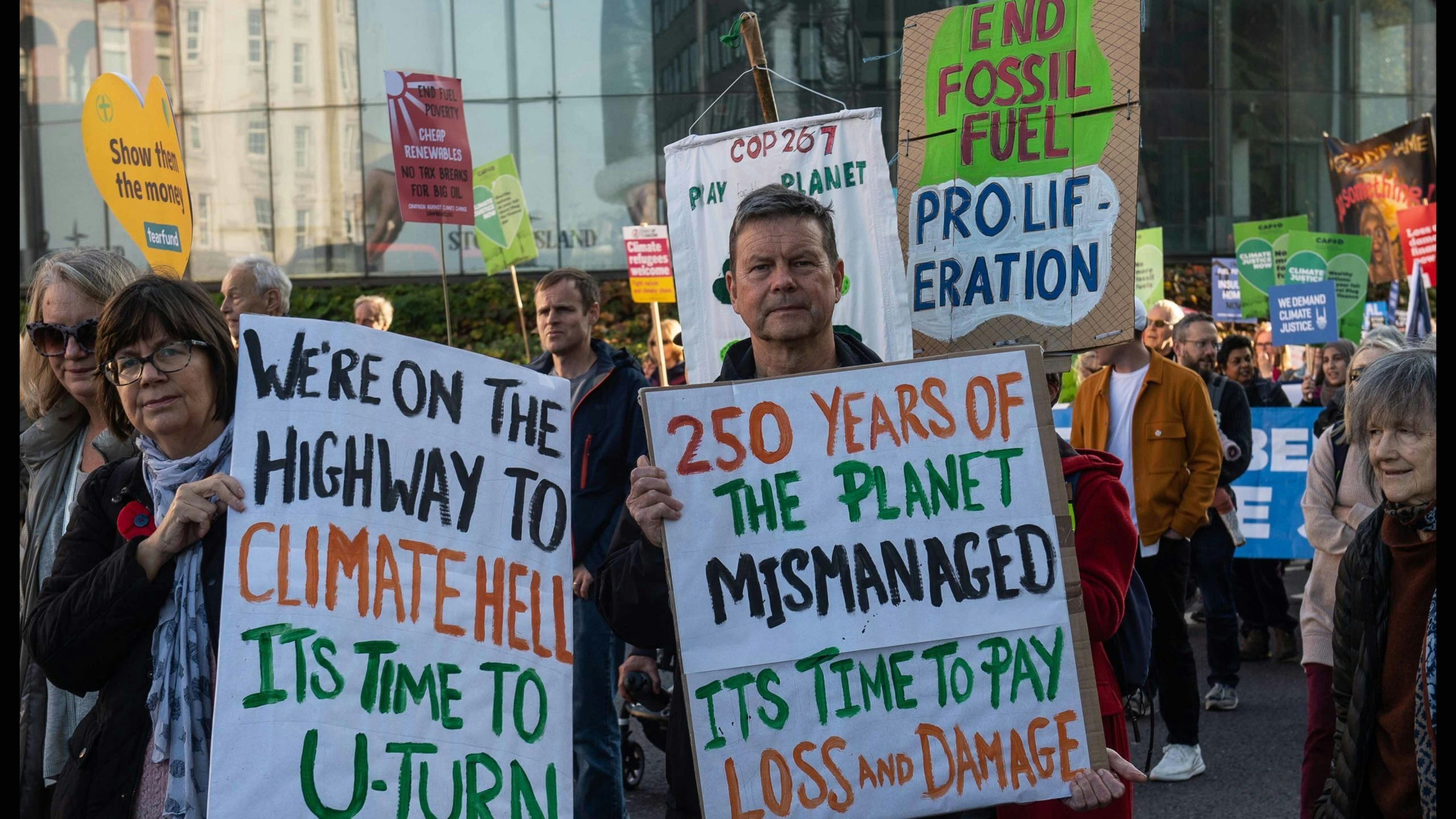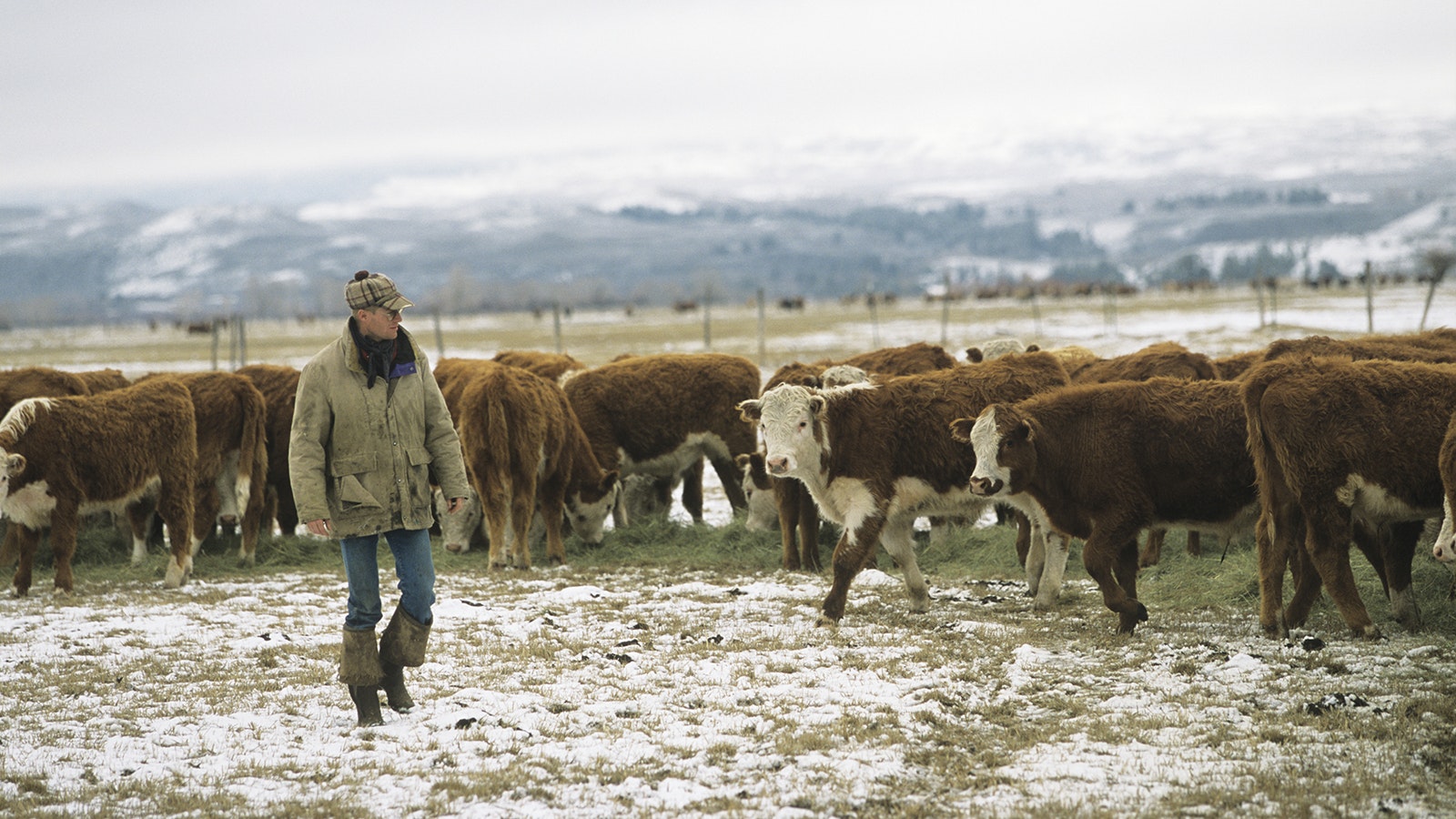For the past 14 years, Tony Heller, a geologist and engineer who lives in Cheyenne, has been on a mission of countering the language of doom and destruction that informs so many people’s understanding of climate change.
He’s not the only one. Dr. Matthew Wielicki, an assistant professor in the Department of Geological Sciences at the University of Alabama, also is trying to communicate that the best science on climate change doesn’t predict the apocalypse.
“Originally, I thought it was a scientific debate, and I quickly realized the people pushing this were not interested in facts,” Heller said.

Ad Hominem
Heller’s critics often latch onto his background in engineering and geology to say he’s not qualified to discuss climate change.
Roger Pielke Jr., professor of environmental studies at the University of Colorado Boulder, became the subject of attacks for his analyses of damage costs from extreme weather over time. The figures, which are increasing over time, are often presented to show that weather is becoming more extreme.
Pielke’s research factored in changes in wealth over time — what is called normalizing costs. A hurricane hitting Miami Beach today is going to impact a lot more development than a hurricane in 1920. Even if the storms are the same intensity, the cost of damage from the one hitting today would be greater, simply because there’s more wealth to be lost.
Pielke normalized these costs over time to show that the cost of damages over time is actually decreasing.
Double Standard
Since Pielke’s background is in political science — even though the bulk of his academic research is in climate change — he is often dismissed and called a “climate denier.”
After he testified before Congress, U.S. Rep. Raul Grijalva, D-Arizona, initiated a very public investigation of Pielke’s finances to find out if he received money from fossil fuel companies.
Heller said that these attacks on credentials are never applied equally.
Noted climate scientist Michael Mann — famous for his questionable hockey stick graph showing rapid increases in temperatures — also has a background in geology. While Mann has a Ph.D. in the field and Heller a Bachelor of Science, no one questions if Mann is qualified to research climate.
An Inconvenient Fiction
Last April, a poll by YouGov found that more than 25% of adults believe that climate change will make the planet uninhabitable. Half of all Democrats believe it. The same month, a survey by 4-H by The Harris Poll, an American marketing and analytics company, found that 84% of teenagers believe climate change left unchecked will render parts of the planet uninhabitable.
There is nothing in the reports by the International Panel on Climate Change, a government consortium of the world’s leading climate scientists, that suggests any such thing.
Heller blames the media and the education system for reporting doomsday scenarios when reporting about climate change.
“Millions of children around the world are forced to watch Al Gore’s science fiction movie [‘An Inconvenient Truth’], and they’re not really allowed to hear any other points of view in most schools,” Heller said. “To me, that’s just scary. Children believe their futures are doomed unless we shut down the energy supply that we all depend on for our day-to-day survival.”
Questioning Faith
Oddly, Heller said, when he presents facts that challenge the idea the world will end, many people are resistant to considering the information, as if they want to believe there’s no future.
For example, polar bears were featured in Al Gore’s documentary and have become a poster child for climate change. Many people believe the species is disappearing. According to the Polar Bear Specialist Group, their numbers have increased five-fold since 1960.
Likewise, it’s safe to assume people who believe the world is going to become uninhabitable due to climate change are likely ignorant of the scientific data on climate-related deaths, Heller said.
According to the non-partisan International Disaster Database, the number of climate-related deaths has fallen 98% since 1920. The risk of dying in a natural disaster has never been lower.
“You think they’d be thrilled that their polar bears aren’t getting drowned,” Heller said. “I think a lot of people who have an emotional dependency. … Maybe their lives are boring. Maybe they feel bad about themselves.”
Energy watchdog Michael Shellenberger speculates that for many, climate change has become something of a religion. Many young people don’t accept traditional faiths, and the notion of being righteous crusaders against evil who threaten the world with doom gives their lives meaning and purpose — something traditional faiths have supplied.
Mental Health Crisis
Wielicki, an assistant professor at the University of Alabama, became concerned about the impact of catastrophic climate change alarmism while asking his students about their future plans.
“It was very eye opening that the vast majority of my students, particularly female students, were no longer even considering raising a family. And I can see how demoralized they were. And that’s really what kind of opened my eyes to the fact that we have a real mental health crisis on our hands,” Wielicki said.
Wielicki said the main reason was this “never-ending drumbeat of catastrophism.”
Besides driving a lot of depression in young people, Wielicki believes it’s undermining good stewardship of the environment. The fear drives a sense of futility, so the students lack ambition to do anything to produce a better future.
“If you’re really concerned about the environment, this is the exact wrong way to go about it,” Wielicki said.
Show Me The Money
He believes what drives a lot of this alarmism is financial interests. If research concludes that there’s a crisis, then it gets more attention — and more funding.
The IPCC research, for example, has a very low confidence that global warming has produced more frequent or more intense hurricanes. Then, when the research is presented to the public or policymakers in the group’s summaries, the reports predict catastrophic storms are coming in the future.
“If there is no climate catastrophe in the future, is there really a need for the IPCC?” Wielicki said.
He added that the group is not really a scientific body, but a government one made up of politicians and bureaucrats.
“They want to change your behaviors and change policy,” he said. “They think that the ends justify the means.”
Scientific Integrity
Wielicki said he’s concerned as a scientist that trust in science is already eroding, and the misrepresentation of climate science is only going to make it worse.
“If we lose the public’s trust in science, then basically my career is worthless. Because if I don’t have the trust of the people that I’m talking to, they’re not going to believe anything,” Wielicki said.
Heller has some optimism about the situation, in part, because of Tesla CEO Elon Musk’s takeover of Twitter. Heller said he was once blocked from Twitter for a year for alleged misinformation. Now, with Musk reversing bans on various groups of people who challenged the status quo, there’s a platform to present more perspectives on climate change.
“I think there’s a huge opportunity to educate people. I’m getting the word out to people that they’re being lied to,” Heller said.





